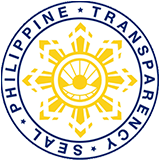A total of 900 family-beneficiaries under the Modified Conditional Cash Transfer for Homeless Street Families (MCCT-HSF) project of the Department of Social Welfare and Development (DSWD) will experience a three-day family camping activities which aims to develop their overall emotional, social and physical strengths.
To be held at Island Cove in Cavite City, the homeless street families were grouped into three (3) batches with 300 families or 1,500 individuals per batch coming from 13 cities in NCR.
The first batch of families had their camping last November 7-9 while the second and third batch will be on November 14-16 and November 27-29, respectively.
“With this family camp, surely, it will be a meaningful experience for the homeless street families as different programs and outdoor activities were prepared for them which will discover their talent, skills and interests,’’ said DSWD Assistant Secretary Vilma Cabrera.
Cabrera added that this event will let them even temporarily forget their everyday struggle on streets and hopefully experience a real family life. It will enable them to actually do something in order to make their family, especially their children free from risks and vulnerabilities of the streets.
The implementation of Modified Conditional Cash Transfer for Homeless Street Families (MCCT-HSF) project expands the coverage of the Pantawid Pamilyang Pilipino Program by targeting the homeless street families who were not included in the Pantawid Program because of their mobile lifestyle and indefinite residence,’’ Cabrera explained.
The project provides a complete package of assistance to the street families which are not limited to education and health grants, but also include safe and responsive housing assistance with access to social services and economic opportunities for the improvement of their living conditions.
Similar with the beneficiaries of the regular CCT, the homeless street families under the MCCT project also receive monthly cash grants for health and education, provided that they comply with the modified conditionalities.
The conditions that they should comply are: parents should ensure their children do not stay or work in the streets; parents/guardians should participate/attend the Family Life Education and Counseling, and Family Development Sessions conducted in their locale; children should be attending any mode of learning, either regular school, Alternative Learning System (ALS), School on Wheels, Supervised Neighborhood Play (SNP; parents/guardians should bring their children to health centers for immunizations, weight and height monitoring and preventive check-ups; and household beneficiaries must stay in alternative residences after identification, relocation and/or provision of shelter assistance for them. ###



